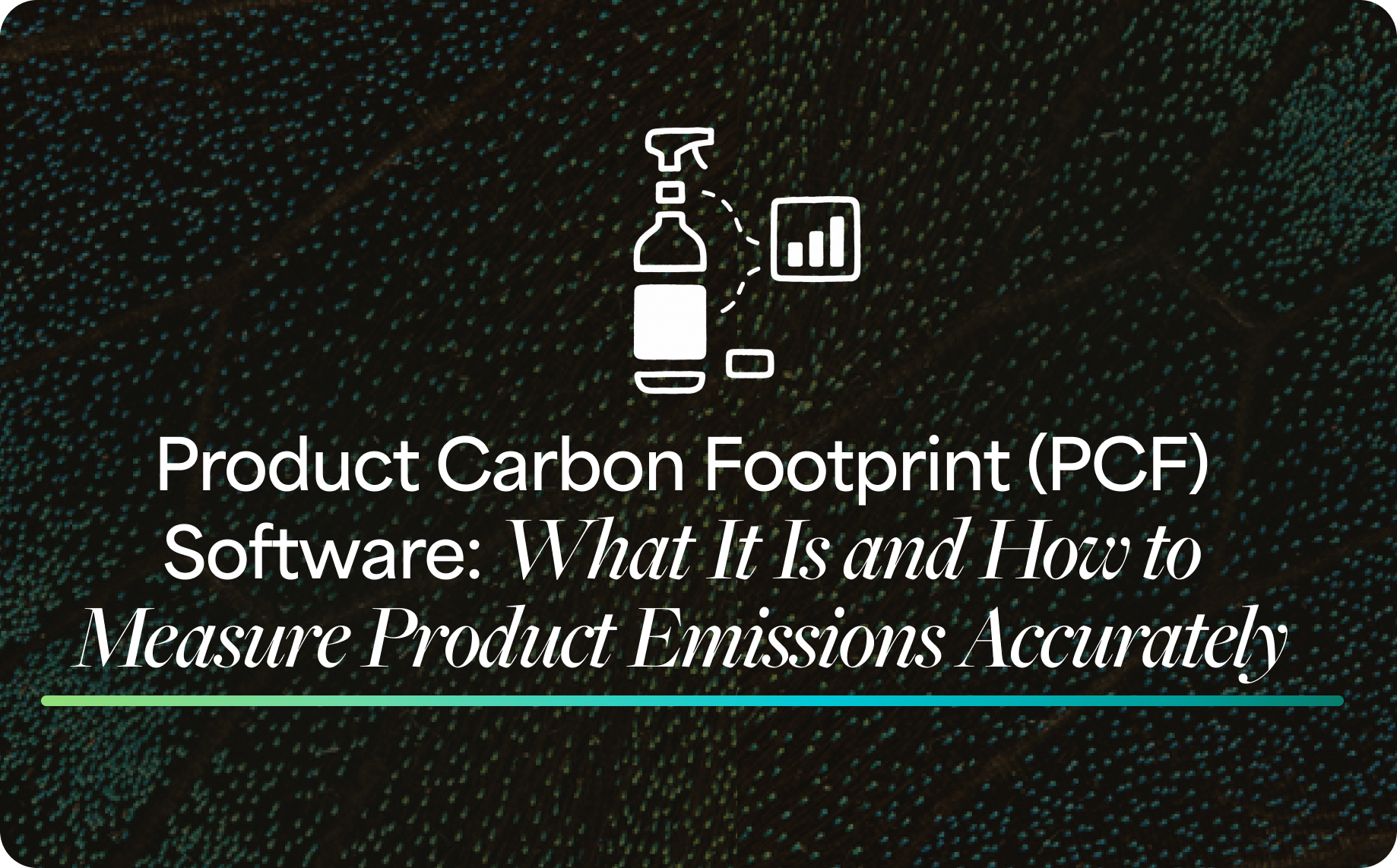Lifecycle Assessment (LCA) is a systematic method for evaluating the environmental impacts associated with all stages of a product’s life—from raw material extraction, manufacturing, and distribution, to use, end-of-life treatment, and disposal. The goal is to quantify the total environmental footprint, including greenhouse gas (GHG) emissions, water use, energy consumption, and other impacts.
Key Steps in LCA:
- Goal and Scope Definition:
Define the purpose, system boundaries, and functional unit (e.g., “cradle-to-grave” or “cradle-to-gate”). - Life Cycle Inventory (LCI):
Collect data on all inputs (materials, energy) and outputs (emissions, waste) for each stage. - Life Cycle Impact Assessment (LCIA):
Translate inventory data into environmental impact categories (e.g., global warming potential, acidification). - Interpretation:
Analyze results, identify hotspots, and recommend improvements.
Product Carbon Footprint (PCF):
While a LCA focuses on the comprehensive environmental impact of a product, a Product Carbon Footprint (PCF) is a narrower, focused assessment that specifically measures the total greenhouse gas emissions over a product’s life cycle.
Technical Standards:
- ISO 14040 and ISO 14044 are the primary international standards governing LCA methodology.
- The Product Environmental Footprint (PEF) by the European Commission is gaining traction for product-level assessments.
Why Is LCA Important for Sustainability?
- Regulatory Compliance:
LCA is increasingly required for compliance with regulations such as various European Directives for selected industries, and suppliers impacted by the EU’s Carbon Border Adjustment Mechanism. - Market Differentiation:
Companies use LCA to substantiate eco-labels, Environmental Product Declarations (EPDs), and green marketing claims. - Risk Management:
Identifies environmental hotspots and supply chain risks. - Investor and Consumer Demand:
Transparency in product impacts is now a key expectation.
How AI Agents Are Transforming Lifecycle Assessment
Traditional LCA is data-intensive, time-consuming, and often limited by data quality and availability. AI agents are now revolutionizing the process in several ways:
1. Automated Data Collection and Cleansing
AI can ingest data from bills of materials, supplier databases, IoT sensors, and public datasets, reducing manual effort and errors.
Example
Machine learning models can fill data gaps by predicting missing values based on similar products or processes.
2. Real-Time Scenario Analysis
AI agents can simulate the environmental impact of design changes, material substitutions, or supply chain shifts instantly.
Example:
Generative AI can model “what-if” scenarios, such as switching to recycled materials, and estimate the resulting carbon footprint.
3. Enhanced Accuracy and Granularity
Natural language processing (NLP) and computer vision can extract relevant data from unstructured documents (e.g., supplier PDFs, technical specs), improving the granularity of LCA.
4. Scalable, Continuous Assessment
AI enables organizations to perform LCAs across entire product portfolios, not just flagship products, and to update assessments as new data becomes available.
5. Regulatory Alignment
AI agents can automatically map LCA methodology and results to standards and reporting frameworks , ensuring compliance and facilitating audit readiness.
Unravel Carbon: AI-Driven Product Carbon Footprinting
Unravel Carbon is at the forefront of leveraging AI for sustainability, with features that directly support lifecycle assessment and product-level carbon footprinting. Our feature’s methodology has been certified to align with the ISO 14067 standards for Product Carbon Footprinting.
Key Feature: Product Carbon Footprint Agent
- What It Does: Our upcoming Product Carbon Footprint Agent makes it simple to calculate your product’s emissions — just upload your bill of materials, and the agent automatically builds a complete product carbon footprint (PCF).
- How It Works:
- Uses AI to automate data extraction from complex supply chain documents.
- Provides a chat interface for building PCFs and conducting scenario analysis.
- Enables rapid, repeatable, and auditable product-level assessments.
Additional Unravel Carbon Capabilities Relevant to LCA
- Automated Data Mapping:
AI-driven mapping of company data to Unravel’s data base of emission factors. - Scenario Modeling:
Instantly model the impact of design or supplier changes on product footprints. - Transparent Documentation:
Generates transparent, traceable reports for internal and external stakeholders.
Technical Terms Explained
- Functional Unit: The reference unit for which impacts are calculated (e.g., “1 kg of product”).
- Cradle-to-Grave: Assessment from raw material extraction to end-of-life disposal.
- Cradle-to-Gate: Assessment from raw material extraction to factory gate (before consumer use).
- Life Cycle Inventory (LCI): The data collection phase of LCA.
- Life Cycle Impact Assessment (LCIA): The phase where inventory data is translated into environmental impacts.
How Unravel Carbon Stands Out
- AI-First Approach:
Unravel Carbon’s upcoming Product Carbon Footprint Agent leverages AI for both data ingestion and scenario analysis, reducing manual effort and increasing accuracy. - Chat-Based LCA Modeling:
The chat interface democratizes LCA, making it accessible to non-experts and enabling rapid iteration. - Standards Alignment:
Unravel Carbon’s platform is TÜV Rheinland certified for both Corporate and Product Carbon Footprinting, with methodologies verified against the GHG Protocol for CCF (Corporate Carbon Footprinting) and ISO 14067 for PCF (Product Carbon Footprinting). This gives users confidence that our platform meets global benchmarks for accuracy, credibility, and assurance readiness.
Frequently Asked Questions
1. What is the difference between LCA and a product carbon footprint?
LCA covers all environmental impacts (e.g., water, energy, toxicity), while a product carbon footprint focuses specifically on greenhouse gas emissions.
2. How can AI improve the accuracy of LCA?
AI can improve the accuracy of LCAs by automating data collection and matching, reducing human error, and filling data gaps through intelligent estimation and pattern recognition across large datasets..
3. Does Unravel Carbon support full LCA or just carbon footprinting?
Unravel Carbon’s current and upcoming features focus on product carbon footprinting, a core component of LCA, with AI-driven automation and scenario analysis.

%20%20.jpg)
.jpg)

.jpg)